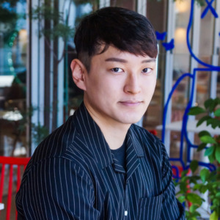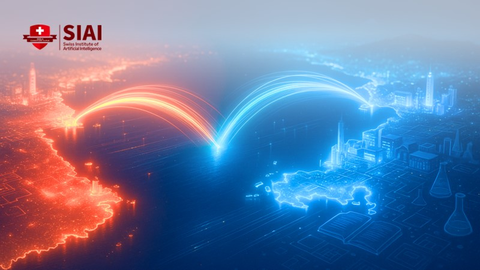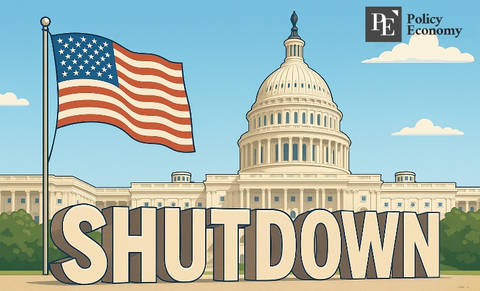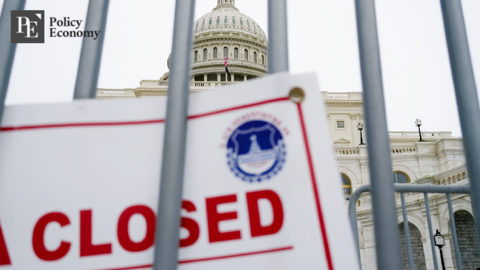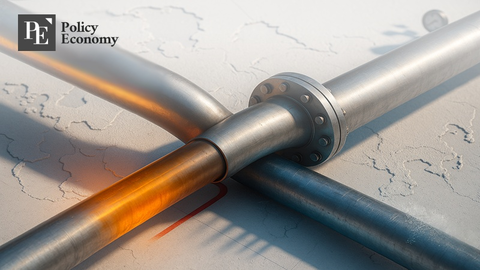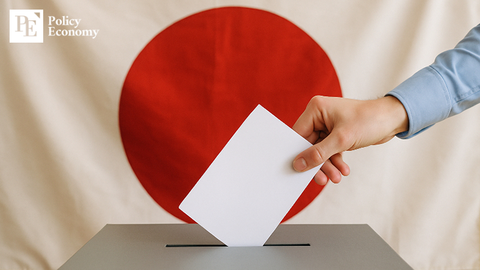[동아시아포럼] 한일 화해의 지속가능성에 대한 의문
입력
수정
[동아시아포럼]은 EAST ASIA FORUM에서 전하는 동아시아 정책 동향을 담았습니다. EAST ASIA FORUM은 오스트레일리아 국립대학교(Australia National University)의 크로퍼드 공공정책 학교(Crawford School of Public Policy) 산하의 공공정책과 관련된 정치, 경제, 비즈니스, 법률, 안보, 국제관계 및 사회에 대한 분석 및 연구를 위한 플랫폼입니다.
저희 폴리시코리아(The Policy Korea)와 영어 원문 공개 조건으로 콘텐츠 제휴가 진행 중입니다.
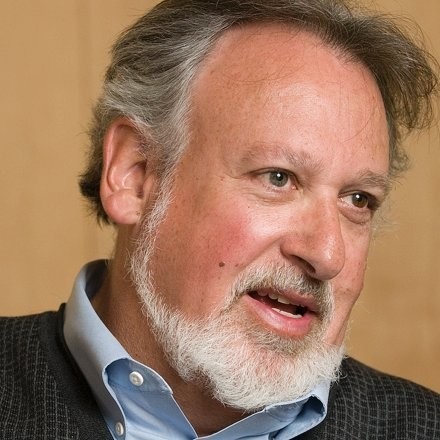
다니엘 C. 스나이더는 스탠포드 포드 도르시 국제정책 석사 과정의 국제정책 강사이자 스탠포드 동아시아 연구 강사입니다. 현재 미국의 대아시아 외교 및 국가 안보 정책, 일본과 한국의 외교 정책을 중점적으로 연구하고 있습니다. 2017년부터는 캐논 글로벌 연구소의 객원 연구원으로 도쿄에 거주하며 냉전 시기 일본 및 한국과의 미국 안보 동맹의 형성과 관리에 관한 외교사를 연구하고 있습니다. 스나이더는 일본의 주요 간행물인 도요 게이자이와 아시아 정책 이슈에 관한 넬슨 리포트에 정기적으로 기고하고 있습니다.
2023년 3월 23일 윤석열 한국 대통령과 기시다 후미오 일본 총리가 함께한 도쿄 정상회담은 지난 5년간 쌓여온 불통의 찌꺼기를 상당 부분 해소하는 데 성공했습니다.
한국 대통령으로서는 십여 년 만에 이루어진 이틀간의 공식 방문에서 두 정상은 해야 할 일들을 상당 부분 해결했습니다. 양국 정상 간 정례 회담을 복원하고 2019년부터 시행된 무역 보복 조치를 철회했습니다. 두 정상은 북한에 대한 대응을 최우선으로 하는 공동의 안보 의제를 수용하고 한일 군사정보포괄보호협정 정보 공유 약정의 운영을 재확인했습니다.
이제 한일 관계의 정상화 또는 최소한 기능 회복을 위한 무대가 마련되었습니다. 두 정상의 뒤에는 상호 동맹국인 미국이 있습니다. 바이든 행정부 관리들은 특히 안보 분야에서 한미일 3국 협력의 필요성을 강조해 왔습니다. 윤 대통령에게 도쿄 정상회담은 다음 달 워싱턴 국빈 방문을 위한 필수 전제 조건이었습니다.
그러나 이번 방문에서 두 정상은 경제 안보에 관한 새로운 대화 재개와 중국과의 3국 정상 대화 복원을 발표하는 등 한국과 일본이 냉전적 대립과 전면적 경제 전쟁으로 치닫는 것에 반대하는 열망을 공유한다는 증거도 보여주었습니다.
이 모든 것은 일본 광산과 공장에서 무급으로 강제징용된 한국인 노동자에 대한 보상 문제라는 첨예한 전시 사안에 대해 일본과 양자 합의에 실패한 것을 정치적으로 위험한 결단을 내린 윤 대통령의 결단이 있었기에 가능했습니다. 2018년 한국 대법원이 신일철주금과 미쓰비시중공업 등 일본 기업 두 곳에 생존 노동자들에 대한 배상금을 지급하라는 판결을 내린 것이 최근 한일 관계 악화의 주요 원인이었습니다.
수개월에 걸친 장관급 협상에도 불구하고 이 문제에 대한 입장 차를 좁히지 못했습니다. 한국은 1965년 한일 국교 정상화 당시 체결된 청구권 협정으로 이 문제가 해결되었기 때문에 강제징용 노동자들에게 법적으로 배상할 의무가 없다는 일본의 주장에 굴복했습니다. 한국 정부는 대신 포스코와 다른 한국 기업들의 기부금으로 조성된 기존 기금을 보상금으로 사용하겠다고 제안했습니다.
그러나 한국 정부는 기시다 총리의 반향을 기대하며 두 일본 기업에 자체 사과 성명을 발표할 것과 해당 기금에 자발적으로 출연할 것을 촉구했습니다. 이러한 노력은 피해자와 변호인, 대중의 동의를 얻는 데 중요한 열쇠로 여겨졌습니다.
기시다 총리는 루비콘강을 건너는 것을 주저했습니다. 그는 2015년 외무상이던 시절 주도한 한국 '위안부'에 대한 보상 및 사죄 합의를 둘러싼 논란으로 인해 역사 문제에 대한 양국 간 합의를 경계하고 있습니다. 또한 기시다 총리는 역사에 대한 어떠한 양보에도 반대하는 일본 보수파의 거센 압박을 받고 있습니다.
기시다 총리는 공동 기자회견 성명에서 문제가 된 과거사에 대해 명확한 입장을 밝히지 않았으며, 간접적으로라도 일본이 피해자들에게 배상하려는 움직임을 배제했습니다.
일본의 이러한 도덕적으로 불투명한 대응은 이를 항복으로 여기는 한국 국민들의 분노를 키웠습니다. 여론조사에 따르면 한국인의 상당수가 일본 기업의 사과를 원하고 있는 것으로 나타났습니다. 야당인 더불어민주당은 이번 결과를 공격하며 시끄럽고 다소 의례적인 대중 시위를 조직했습니다. 과거에서 벗어나고자 하는 한국의 열망은 분명하지만, 윤 대통령의 정책을 지지하는 사람들조차 일본의 용기 부족에 실망감을 표하고 있습니다.
신각수 전 도쿄 주재 한국 대사는 '자신의 정치적 명운을 걸고 대담하게 나선 윤 대통령의 구상에 호응하지 않는 일본 정부의 소심함에 실망했다'고 말했습니다. 그는 이어 '적어도 총리가 진정성 있고 구체적인 사과를 했어야 했다'고 덧붙였습니다.
일각에서는 기시다 총리가 올해 말 한국 방문을 계기로 한 발짝 더 나아갈 것이라는 희망도 있습니다. 윤 대통령은 보수 성향의 아소 다로 자민당 총재와 스가 요시히데 전 총리 등을 만나 일본 내 화해 분위기를 조성하기 위해 노력해 왔습니다. 그러나 지금까지 기시다 총리는 화해에 화답할 능력도, 의지도 없는 것 같습니다.
이 모든 것의 이면에는 이러한 법적 문제가 일방적으로 조성된 펀드로 완전히 해결되지 않을 가능성이 숨어 있습니다. 신일철주금(현 일본제철) 소송에 참여한 15명의 소송인 중 일부가 이 펀드의 지급을 거부하고 있습니다. 그 외에도 더 많은 일본 기업을 상대로 제기된 소송이 있으며, 그중 하나는 60개 이상의 일본 기업을 상대로 약 1,000명의 생존 노동자와 그 후손을 대신하여 집단 소송을 제기한 소송입니다.
피해자들을 대리하는 일부 변호사들에 따르면 이 소송을 해결하려면 상당한 자금이 필요하지만 합의에 응할 준비가 되어 있다고 합니다. 대법원 소송에 참여한 15명의 소송 당사자 중 대부분은 개인적으로 합의에 동의했습니다.
대규모 집단 소송의 수석 변호사이자 현재 계류 중인 다른 소송의 공동 변호사인 로버트 스위프트는 “그들은 특히 사과가 강화된 합의를 수용하기를 원합니다"라고 말합니다. “재단이 돈을 갖고, 재단이 돈을 지급하고, 원고들이 소송을 취하하는 실제론 매우 간단한 방식”이라는 설명입니다.
윤 대통령은 이번 주 미-중 긴장 고조, 공급망 붕괴, 북한 핵 위협 등 글로벌 이슈 속에서 '서울과 도쿄 간 협력의 필요성은 더욱 커지고 있다'며 자신의 정책을 전면적으로 옹호하고 있습니다.
한일 관계의 화해와 정상화를 위한 문이 열렸고, 앞으로 다가올 폭풍우를 견딜 수 있도록 길을 닦을 수 있는 분명한 방법이 있습니다. 하지만 역전의 위험은 여전히 남아 있습니다. 현재로서는 그런 일이 일어나지 않도록 해야 할 책임이 기시다 총리에게 있습니다.
Can the South Korea–Japan rapprochement stick?
The Tokyo summit that brought together South Korean President Yoon Suk-yeol and Japanese Prime Minister Fumio Kishida on 23 March 2023 successfully cleared away much of the accumulated debris of the last five years of dysfunctionality.
The two-day official visit — the first by a South Korean president in a dozen years — checked off a substantial list of to-do items. It restored regular meetings between the leaders of the two countries and rolled back the tit-for-tat trade measures in place since 2019. The two leaders embraced a shared security agenda, topped by countering North Korea, and reaffirmed the operation of the General Security of Military Information Agreement intelligence-sharing pact.
The stage is now set for a return to normalcy, or at least functionality, in South Korea–Japan relations. Looming over both leaders was the United States, their mutual ally. Biden administration officials have been pounding away at the need for trilateral cooperation, particularly in the security arena. For Yoon, the Tokyo summit was a necessary precondition for a state visit to Washington next month.
But the visit also offered evidence that Seoul and Tokyo share a desire to push back against a drift towards Cold War style confrontation and full scale economic war, with the two leaders announcing the creation of a new dialogue on economic security and a desire to restore the trilateral summit dialogue with China.
All of this was made possible due to President Yoon’s politically risky decision to accept the failure in reaching a bilateral agreement with Japan on the thorny wartime issue of compensation for South Korean labourers forced to work in Japanese mines and factories without pay. The Supreme Court of Korea’s decision in 2018 to order two Japanese firms — Nippon Steel and Mitsubishi Heavy Industries — to pay a handful of surviving labourers was the primary driver of the recent downturn in South Korea–Japan relations.
Months of negotiations at the ministerial level failed to bridge the gap on this issue. South Korea yielded to Japan’s insistence that it was legally not obliged to pay the forced labourers, as this issue had been settled by the Claims Agreement reached at the time of normalisation of the two countries’ diplomatic relations in 1965. Seoul offered instead to use an existing fund for compensation, fed by contributions from POSCO and other South Korean firms.
But the South Korean government pushed for the two Japanese firms to offer voluntary contributions to that fund in addition to their own statement of apology, in the hope that it would be echoed by Prime Minister Kishida. This push was rightfully seen as key to gaining the acceptance of the victims, their lawyers and the public.
Prime Minister Kishida balked at crossing that Rubicon. He is wary of bilateral agreements on history issues due to the controversies which arose from the 2015 compensation and apology deal for South Korean ‘comfort women’ he reached as foreign minister. And Kishida is under heavy pressure from Japanese conservatives who oppose any concession on history.
In his statement at a joint press conference, Kishida issued no clear expression of his own about the troubled past and ruled out any Japanese moves to reimburse the workers, even indirectly.
This morally murky response from Japan has fed those in South Korea who see this as a surrender. Polls show that a significant majority of South Koreans want the Japanese firms to join in and to apologise. The opposition Democratic Party has assailed the outcome and have organised loud and somewhat ritualised public protests. Though there is a clear desire in South Korea to move away from the past, even supporters of Yoon’s policy express dismay at Japan’s lack of courage.
Former Korean ambassador to Tokyo Shin Kak-Soo expressed his ‘[disappointment] at the timidity from the Japanese government to respond to the bold initiative by President Yoon who risked his political fortune.’ He continued, ‘At least the Prime Minister should have made sincere and concrete apology.’
There is some hope that Kishida will use the opportunity of a visit to South Korea later this year as a moment to step forward. Yoon has made efforts to sell reconciliation in Japan by meeting with conservative Liberal Democratic Party stalwarts Taro Aso and former prime minister Yoshihide Suga. But so far, Kishida seems unable or unwilling to reciprocate.
Lurking behind all this is the possibility that these legal issues may not be fully resolved by a unilaterally created fund. A handful of the 15 litigants in the Nippon Steel case are refusing to accept payments from that fund. And beyond them are other suits that have been filed against a larger set of Japanese companies, one of them being a class action style suit on behalf of potentially almost 1000 surviving labourers and their descendants against more than 60 Japanese firms.
But while the resolution of these suits will require substantial funds, there is a readiness to accept settlement, according to some of the lawyers representing the victims. Most of the 15 litigants in the Supreme Court case have privately agreed to the settlement.
‘They want to embrace the settlement, especially with the enhancement of an apology,’ says Robert Swift, the lead counsel for the larger class action suit and co-counsel for other suits now pending. ‘It’s actually very simple — the foundation will have the money, the foundation will pay the money, and the claimants will dismiss their litigation.’
President Yoon offered his own full-throated defence of his policy this week, declaring that ‘the necessity of cooperation between Seoul and Tokyo is ever increasing’ amid global issues such as escalating US-China tensions, supply chain disruptions and North Korean nuclear threats.
The door to rapprochement and normalisation of South Korea–Japan relations has been opened — and there is a clear way to pave the road forward so that it can withstand coming storms. But the perils of reversal remain. For now, it is Kishida who bears the responsibility to make sure that doesn’t happen.
